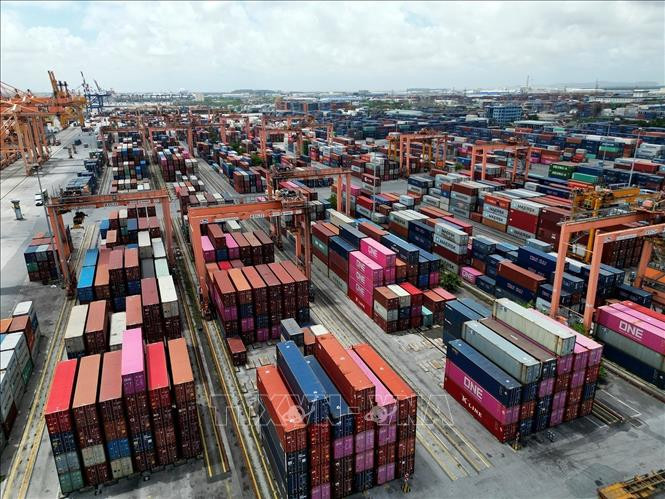According to the Vietnam Logistics Services Association (VLA), Vietnam's current logistics costs average 16.8 - 17% of GDP, much higher than the world average of 10.6%.
Meanwhile, domestic logistics infrastructure still has many limitations, lacks synchronization and connectivity; seaport planning is still inadequate, there are no key ports... That hinders the improvement of the competitiveness of the logistics industry in the context of strong global economic integration.

Analyzing this issue in depth, Mr. Le Duy Hiep, Chairman of VLA shared that the connection between transport modes is still limited. The reason is that the capacity of water transport is still low, with inland waterway transport accounting for only 21.6%; road transport is still the most popular mode of transport, accounting for 73%. The total volume of goods transported by sea only accounts for 5.2%, by rail 0.2% and by air 0.01%. Thereby, it increases logistics costs, reducing the competitiveness of Vietnamese goods.
According to the World Bank's report published in 2023, Vietnam ranked 43rd in the Logistics Performance Index (LPI), among the top 5 countries in ASEAN, after Singapore, Malaysia, Thailand and the same position as the Philippines. The average annual growth rate of Vietnam's logistics market is 14 - 16%, making an important contribution to promoting Vietnam's import and export turnover over the past many years. However, Vietnam's logistics service industry is facing many challenges and limitations in the capacity of logistics service providers. The digital transformation activities of most logistics enterprises are also in the early stages and have not received proper investment attention.
Faced with this situation, Mr. Tran Tuan Anh, Head of the Central Economic Committee, stated that logistics is a service industry that plays an essential role and makes important contributions to socio-economic development. Although Vietnam's logistics industry has made strong progress in recent times, businesses in the industry need to enhance their professional capacity and service quality, and promote links between logistics businesses and manufacturing, trading or import-export businesses.
"Agencies, departments and sectors must also continue to innovate and improve the quality of institutional building, perfect policy mechanisms and legal regulations on logistics, ensure compliance with international commitments and practices, create a complete and synchronous legal corridor to encourage domestic logistics companies to develop. In particular, more active support, help businesses in this industry promote digital transformation and increase the application of scientific and technological achievements to limit risks, increase efficiency, and improve logistics activities. The State will also continue to mobilize resources, remove difficulties, implement key projects of the transport sector and solutions to synchronously develop the system of transport infrastructure, seaports, and logistics centers," Mr. Tran Tuan Anh emphasized.
According to Tin Tuc newspaper